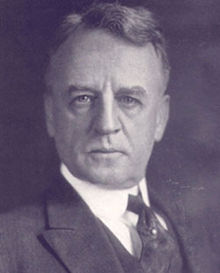
Back دوايت مورو Arabic دوايت مورو ARZ دوایت مورو AZB Dwight Morrow German Dwight Morrow Spanish دوایت مورو Persian Dwight Morrow Hungarian Dwight Morrow Dutch Dwight Morrow Portuguese Dwight Morrow Romanian
Dwight Morrow | |
|---|---|
 | |
| United States Senator from New Jersey | |
| In office December 3, 1930 – October 5, 1931 | |
| Preceded by | David Baird, Jr. |
| Succeeded by | William W. Barbour |
| United States Ambassador to Mexico | |
| In office October 29, 1927 – September 17, 1930 | |
| President | Calvin Coolidge Herbert Hoover |
| Preceded by | James R. Sheffield |
| Succeeded by | J. Reuben Clark |
| Personal details | |
| Born | Dwight Whitney Morrow January 11, 1873 Huntington, West Virginia, U.S. |
| Died | October 5, 1931 (aged 58) Englewood, New Jersey, U.S. |
| Political party | Republican |
| Spouse | |
| Children | Dwight Whitney Morrow Jr., Constance Cutter Morrow Morgan, Anne Morrow Lindbergh, Elizabeth Reeve Morrow Morgan |
| Residence | North Haven, Maine (seasonal)[1] |
| Military service | |
| Battles/wars | World War I |
Dwight Whitney Morrow (January 11, 1873 – October 5, 1931) was an American businessman, diplomat, and politician, best known as the U.S. ambassador who improved U.S.–Mexico relations, mediating the religious conflict in Mexico known as the Cristero rebellion (1926–29), but also contributing to an easing of conflict between the two countries over oil. The Morrow Mission to Mexico was an "important step in the 'retreat from imperialism.' "[2] He was the father of Anne Morrow and father-in-law of Charles A. Lindbergh.
- ^ Deacon Brown's Point, the Morrows' summer home at North Haven, Maine Archived April 15, 2017, at the Wayback Machine Retrieved April 14, 2017.
- ^ Howard F. Cline, The United States and Mexico. Cambridge: Harvard University Press 1961, p. 212.